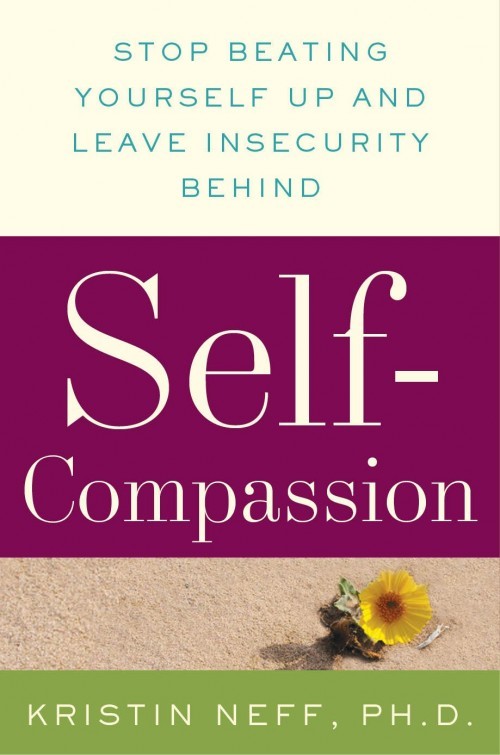The Power of Self-Compassion
Recently, I came across a fantastic book called Self-Compassion by Kristin Neff. She is an associate professor in human development and culture at the University of Texas, Austin. Boy oh boy oh boy does she ever have some powerful and poignant things to say about this concept of self-compassion.
This topic is at the forefront of my mind as I try to focus on getting my health back after the craziness of the past few months. The truth of the matter is that I’ve been really tough on myself, worrying WAY too much about what could go wrong (e.g., doing a face plant on the glass table on the CBS This Morning show). Additionally – and even more importantly! – in Suddenly Seven’s school conference today, her teacher literally said to us, “I’d like for her to be more compassionate with herself. Too often she is self-critical.” GULP. The best way for parents to teach children is to model behavior, so self-compassion, here I come!
In her book, Dr. Neff helps readers understand that compassion isn’t only something that we should apply to others. Just as we’d have compassion for a good friend who was going through a hard time or felt inadequate in some way, why not for ourselves? This makes complete and total sense, right?!? Easier said than done, however.
Dr. Neff believes that there are fundamentally three core components of Self-Compassion:
- The first one is self-kindness, as opposed to self-judgment. A lot of times when we suffer, we just take a very cold attitude toward ourselves. So self-compassion involves being warm and supportive—actively soothing ourselves—as opposed to being cold and judging ourselves.
- The second part is remembering that imperfection is part of the shared human experience—that you’re not alone in your suffering. Often, when something goes wrong, we look in the mirror and don’t like what we see—we feel very isolated in that moment, as if everyone else has these perfect lives and it’s just us who’s flawed and defective. When we remember that imperfection is part of the shared human experience, you can actually feel more connected to people in those moments.
- The third component is mindfulness. If you aren’t mindfully aware that you’re suffering, if you’re just repressing your pain or ignoring it or getting lost in problem solving, you can’t give yourself compassion. You have to say, “Wait a second. This hurts. This is really hard. This is a moment where I need compassion.”
I am completely enamored by Dr. Neff’s research demonstrating that far from encouraging self-indulgence, self-compassion helps us to see ourselves clearly and make needed changes because we care about ourselves and want to reach our full potential. Self-compassion steps in precisely when we fall down, allowing us to get up and try again.
Additionally (I love this part!) her research shows that people who are more self-compassionate lead healthier, more productive lives than those who are self-critical. How is that for a Silver Lining?!?!



Self-compassion is a very nice time. It's perahps easier to be compassioate towards others, and then forget about ourselves entirely! ~Catherine
Indeed it is, Catherine. Indeed it is.
Thanks for the book recommendation! I think I'm pretty safe to say that most of us could be a little more self compassionate.
Kim
Absolutely, Kim! Enjoy it.
I always thought of being compassionate as something we showed toward other people.
Turning this compassion inwards toward ourselves makes sense. We can tune in on our own feelings, acknowledge them, and respond in healthy ways.
Indeed, Carolee. For sure! Thank you!
Oish, this really hit home for me … "see ourselves clearly and make needed changes because we care about ourselves and want to reach our full potential. Self-compassion steps in precisely when we fall down, allowing us to get up and try again." Great post!
Thanks so much, E.B.!